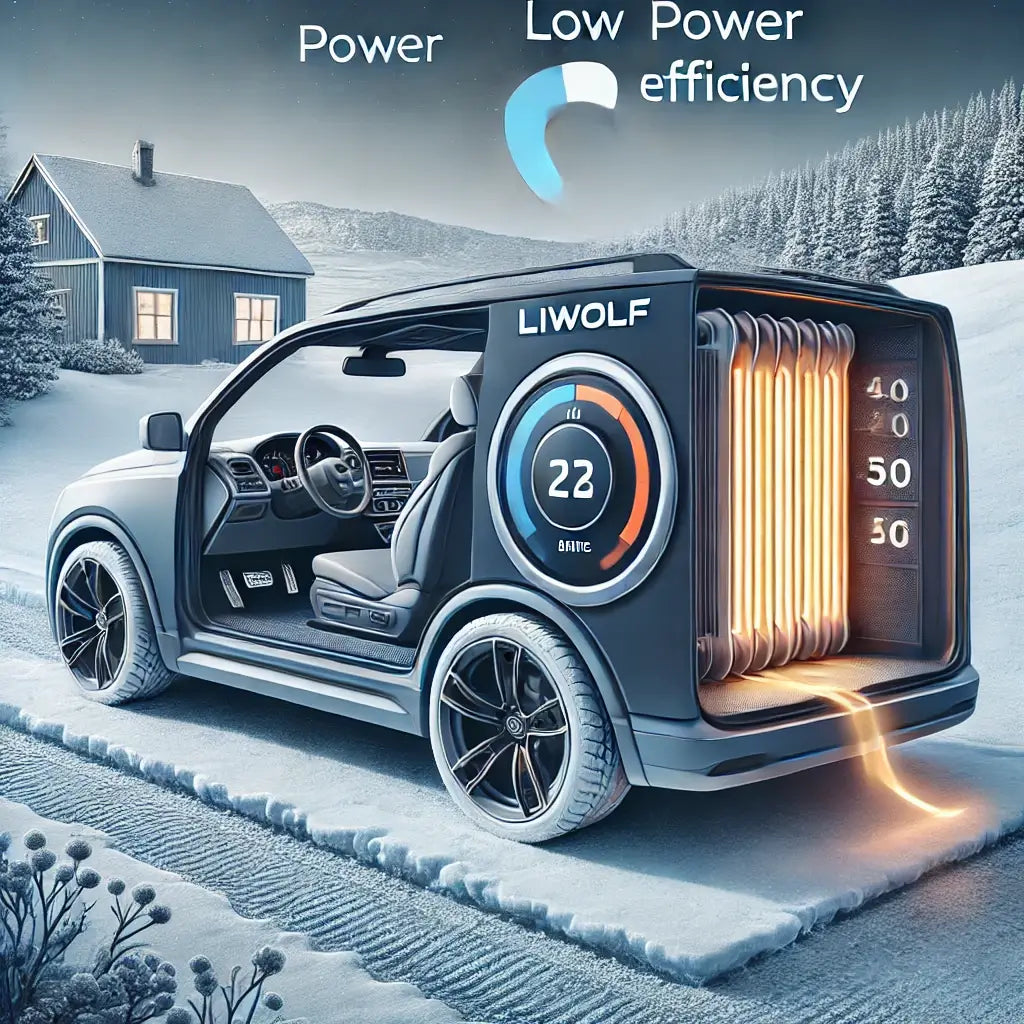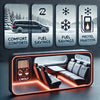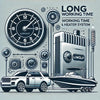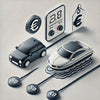How Much Power Does a Parking Heater Consume and How Efficient Is It?

How Much Power Does a Parking Heater Consume and How Efficient Is It?
The power consumption of a parking heater is an important consideration for people who frequently drive in cold climates or stay in their vehicles. It is particularly important for those who rely on batteries or solar panels to heat their vehicles while camping or on the go. But how much power does a parking heater consume exactly and how efficient is it? In this blog post, we delve into the average power consumption of a parking heater and provide some tips to improve the energy efficiency of your parking heater.
How Does the Power Consumption of a Parking Heater Work?
A parking heater generally consumes two types of energy: fuel (usually diesel or gasoline) and electricity. While the fuel is used for combustion and heat generation, electricity is mainly used to operate the fan and control unit of the heater. The total power consumption depends on the model, capacity, and settings of the heater.
The electricity consumption of a parking heater ranges from 10 to 50 watts per hour, depending on the model and conditions. The highest consumption occurs during the startup of the heater, as the fans and combustion unit require extra energy to initiate the system. Once the heater is started and the desired temperature is reached, the power consumption decreases significantly and remains stable at a low level.
Power Consumption per Model
Different models of parking heaters have different energy requirements, depending on their power (expressed in kilowatts) and the size of the vehicle in which they are installed. Here is an overview of the average power consumption per type of parking heater:
- 2KW models: These lighter models typically consume between 10 and 20 watts per hour. This makes them ideal for smaller vehicles such as cars and vans. They are efficient in both power and fuel consumption, making them suitable for short trips or occasional use in cold climates.
- 5KW models: These parking heaters consume approximately 30 to 40 watts per hour and are designed for larger vehicles such as campers, vans, and trucks. They provide more power and can heat larger spaces faster than the lighter models. This model is suitable for individuals who spend longer periods driving or camping in cold conditions.
- 8KW models: These are the most powerful space heaters that can consume up to 50 watts per hour, especially when operating continuously at the highest setting. These models are often used in large vehicles such as trucks, buses, or even boats. Although they consume more power, they are extremely effective in heating larger spaces, even at very low temperatures.
Each model has its own power consumption, but they generally remain very energy-efficient compared to running the engine to generate heat. This makes parking heaters an excellent choice for energy-efficient heating.
Energy Efficiency of Parking Heaters
Diesel heaters are known for their energy efficiency, especially compared to other heating options. This is because they primarily use fuel for heating and only require a small amount of electricity for the fans and control unit. Even with prolonged use, most diesel heaters consume very little power.
Modern stationary heaters are often equipped with energy-saving features, such as thermostat control and timers, allowing you to program the heater to operate only when needed. This not only saves electricity but also ensures that your vehicle remains at a comfortable temperature, even in the coldest conditions.
Tips for Energy-Efficient Use
In order to optimize the power consumption of your parking heater and remain as energy-efficient as possible, there are several tips you can follow:
1. Use the Timer function
Many modern space heaters are equipped with a timer function, allowing you to set the heater to turn on or off at specific times. This ensures that the heater only operates when necessary, saving electricity and fuel.
2. Do not adjust the temperature
Instead of keeping the heater running continuously at the highest setting, you can save energy by adjusting the temperature to a comfortable, but lower level. Lowering the temperature by just a few degrees can already make a significant difference in the stove's power consumption.
3. Ensure Good Insulation
A well-insulated vehicle retains heat better, which means the heater doesn't have to work as hard to maintain a constant temperature. This results in reduced power consumption and fuel consumption, leading to a more efficient operation of your parking heater.
How Does the Outside Temperature Affect Power Consumption?
The outside temperature plays an important role in the power consumption of a parking heater. At lower temperatures, the heater needs to work harder to warm up the cabin and maintain the temperature, which can result in higher energy consumption. This is especially true when the temperature outside is below freezing.
By properly insulating your vehicle and ensuring minimal heat loss occurs, you can prevent the heater from running at full power continuously. This not only extends the battery life but also allows the auxiliary heater to operate more efficiently.
Influence on Batteries and Solar Panels
If you rely on a vehicle battery or solar panels to power your parking heater, it is important to know how long the heater can operate without putting too much strain on the battery. Fortunately, most parking heaters are designed to consume little power and can run for extended periods without draining the battery. This makes parking heaters ideal for off-grid travel, such as in campers or boats.
If you have solar panels on your vehicle, you can use the energy they generate to power the heater, especially on sunny days. This allows you to use the heater for longer periods without relying on external power sources, which is particularly useful for people who frequently travel off-grid.
Conclusion
Auxiliary heaters consume relatively little power compared to other heating options, with an average consumption of 10 to 50 watts per hour, depending on the model and settings. By using energy-saving features such as timers and thermostats, you can further optimize power consumption and remain energy-efficient, even during long journeys or overnight stays in cold climates. This makes auxiliary heaters a cost-effective and reliable choice for anyone looking to keep their vehicle warm without running the engine.
View our range of energy-efficient parking heaters for more information.




